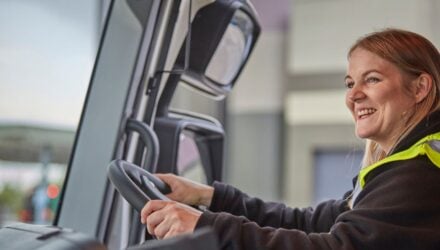
The car industry landscape has evolved hugely over the past decade as it needed to survive the recession of 2008-9 and subsequent lull in the economy. Families were struggling to make ends meet and so were car manufacturers. Showrooms were like libraries, plants were closing and the production line was slowing to a snail speed as very few people could afford to buy a new car.
Years later by 2012, as the economy began to repair itself and businesses began to grow again, the automotive industry introduced new methods for people to obtain a vehicle that were more flexible, agreeable and most importantly affordable for everyone.
According to the Department for Transport statistics ‘between 1996 and 2007, the annual growth in licensed vehicles averaged 2.4% per year, although from the mid-2000s it had already begun to slow somewhat’ and over the period of the recession ‘it slowed further but did not stop, averaging 0.4% a year between 2008 and 2011’, suggesting that newly implemented sales methods were working.
What initially boosted the car industry after the effects of the recession was the vehicle scrappage scheme in 2010, whereby car owners could scrap their old cars and have the value deducted from a new vehicle, which gave the industry ‘a shorter surge in car registrations’ which ‘reflects the effect of the scheme’.
It was schemes like this that got the industry back to sustained growth and in 2014 the Department for Transport declared ‘2.97 million vehicles were registered in Great Britain’, which ‘was the highest annual total’ of vehicles registered for the first time ‘since 2007, but still below the peak year of 2003 (when there were 3.23 million registrations)’.
So there’s evidently some way to go before new vehicle registrations achieve the peak total of 2003, and there are now an array of options for people to obtain a new vehicle, making it easier for the department of transport to see the finish line.
One of the most financially beneficial methods to motorists has been leasing a vehicle for a specific term either by finance or personal contract hire. People could pay a lower deposit and have low monthly payments until the term expires by which they have the option of buying outright with a balloon payment or handing the car back.
This has proved enormously popular since the latter stages of the recession and even from February 2015 to the same month this year the volume of growth in car leasing was up by 22% in just one year according to the Finance & Leasing Association.
What also entices custom is the fact that very often road tax and maintenance is included in the contract, making the process and duration of the lease very stress-free and convenient. Adding a maintenance option to a lease deal often adds as little as 5 pounds per month onto the price but the benefits of this option can be 10 times the price when organised separately. Things like breakdown assistance, annual servicing, tyre replacements and 24/h helplines are prominent in maintenance packages, often saving the motorist hundreds of pounds a year.
Using the lifetime running cost calculator it was quoted that per month including tax, servicing, fuel and insurance a standard BMW 1 Series with a 1.5 litre petrol engine costs to £775, which totalled £9,306 per year. The same calculator used on a standard, unmodified Range Rover Evoque produced a worryingly high costing per month of £1320.36, with a yearly figure of over £15,000. Bearing those numbers in mind it can be obvious to see why so many motorists prefer the cheaper option of leasing.
Low monthly payments, a widely recognised benefit of leasing, often allow people to obtain a vehicle of a much higher calibre and specification than one they would be able to buy outright, giving motorists the opportunity to drive the car of their dreams while not paying the same price.
Another aspect of leasing gives businesses the opportunity to acquire a fleet of vehicles much more easily, for less money and on terms that suit their operational needs. It also gives brands much better representation when their logo is painted on a brand new van or car.
As well as that fleet decision makers can choose to modify their chosen vehicles to meet their business needs, including adding refrigeration units for medicines or foodstuffs, and have their signwriting done for them when they place their order, having everything done fluidly through one supplier and delivered to their specified location. And once the lease is up, the decision makers can simply hand the vehicles back.
Of course there may be some negative aspects of the schemes. Leasing doesn’t suit everybody’s lifestyles and some leasing companies don’t give the option to buy the vehicles outright at the end of the lease so every 2/3 years some businesses might need to change vehicles. However, the silver lining there is that a business will always have brand new vehicles representing the brand to its customers.
Crucially though, leasing your next vehicle could save you a lot of time, money and stress while giving you control of how much you pay and how long for.
If leasing a car has sparked your interest for personal or business purposes, then for more information or to see what’s on offer visit All Car Leasing & All Van Leasing, both part of the Eurocar group. Having over a decade of experience in the industry, their specialist team will be happy to give you more information and guide you to finding a vehicle finance solution that is right for you or your business.


















